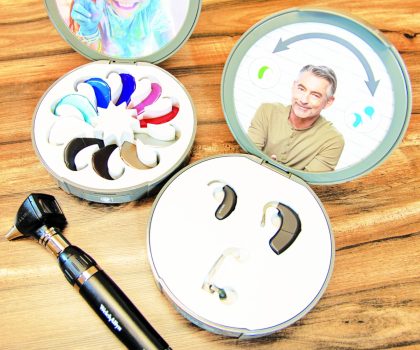Achieving better hearing is as simple as calling Sounds of Life Hearing Center

By Mary Malik
Sarah Curtis, Au.D., owner and executive director of Sounds of Life Hearing Center in Concord, emphasizes the importance of understanding insurance coverage when selecting a healthcare provider.
While many insurance plans cover hearing tests, they often do not cover hearing aids, the most common treatment for hearing loss. Dr. Curtis provides guidance on navigating insurance plans and audiology care coverage.
Commercial (Employer-Sponsored) Insurance
Dr. Curtis explains that commercial insurance rarely covers hearing aids. If benefits are available, they can be complex to understand.
“When it comes to commercial insurance, there is rarely coverage for hearing aids,” Dr. Curtis says. “And if a plan does have benefits, it can be very tricky to figure out what is covered and how often.”
She advises checking the “evidence of coverage” on your insurance plan’s website or through your employer’s benefits department. Also, while hearing tests are usually covered, it’s best to confirm with your insurance company.
Medicaid
Per Dr. Curtis, Ohio Medicaid covers medically-necessary hearing tests. If specific criteria are met and prior authorization is obtained, both adults and children can receive one hearing aid per ear every five years.
Medicare Part B
Medicare Part B covers hearing tests when medically necessary and with a physician’s referral. However, hearing aids are not covered, as they are “statutorily excluded.”
Medicare Part C – Medicare Advantage/Replacement Plans
Dr. Curtis says, “Buyer beware! The advertised ‘benefits’ are not always what they seem.” She warns that advertised benefits for hearing aids in these plans often involve third-party discount programs rather than true benefits.
These plans typically have limited provider networks and may not include high-quality audiologists.
Patients must register with the third-party plan to access benefits, which do not count toward deductibles or out-of-pocket costs.
Benefits are often minimal, and the process can be confusing and lengthy.
The purchase contract is between the third-party plan and the consumer, not the patient and audiologist, potentially leading to delays in reimbursement for services.
Final Thoughts on Insurance
Dr. Curtis highlights the importance of considering audiologists not on your insurance list. Despite her practice being open for nearly six years, she has not been able to get in-network with several insurances. She suggests: “The best providers may not be in-network, but might not be costly for testing. At our practice, a thorough hearing test costs about $180, and we will bill your insurance for possible out-of-network coverage.”

Summer Hearing Health
Summer activities can expose ears to loud noises. Dr. Curtis advises reducing exposure by turning down the volume, moving away from noise and using hearing protection to prevent hearing loss. Custom-molded earplugs, costing $150 and up, can be made by taking silicone impressions of the ear.
Options include:
• Custom swim plugs for those with ear tubes or those prone to swimmer’s ear.
• Noise plugs for those frequently exposed to loud noise from work, hunting, music, etc.
• Custom earpieces for headphones to avoid increasing volume due to poor fit.
Dr. Curtis and her team at Sounds of Life Hearing Center are dedicated to educating patients on better hearing options and affordability.
Sounds of Life Hearing Center is located at 8003 Auburn Road, Suite 4 in Concord. For information and to schedule an appointment, call 440-579-4085 or visit the website SoundsOfLifeHC.com.
